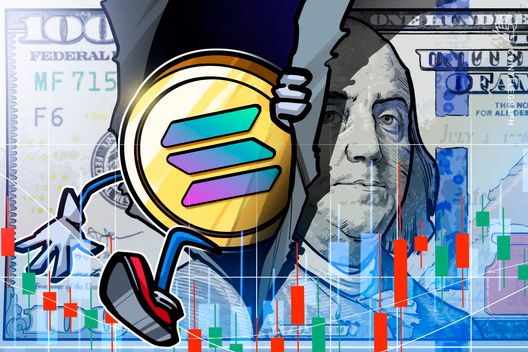Coinbase Secures MiCA License: A New Chapter for European Crypto
In a significant development for the cryptocurrency landscape, Coinbase has announced that it has obtained a Markets in Crypto Assets (MiCA) license from Luxembourg. This milestone allows the fifth-largest crypto exchange globally, as recognized by CoinGecko, to expand its services throughout the 30 nations within the European Economic Area. The MiCA license, crucial for regulatory compliance, positions Coinbase alongside prominent competitors such as Bybit, OKX, and Crypto.com, who have also achieved similar regulatory certifications in recent months.
“Luxembourg has always been a key player in Europe’s financial ecosystem, and we’re delighted to share that Coinbase is officially establishing its European crypto hub in this dynamic country,”
Coinbase’s statement highlights Luxembourg’s robust commitment to fostering a regulatory environment conducive to blockchain and cryptocurrency innovation. The nation has made strides by passing four blockchain-related policies, which reflect its proactive approach to becoming a leading hub in the crypto space. This move not only expands Coinbase’s footprint in Europe but also underscores the EU’s ongoing efforts to draw in major crypto companies while navigating the complexities of regulation in the sector.

Coinbase Secures MiCA License in the EU
Key points regarding Coinbase’s recent achievement and its implications:
- License Acquisition: Coinbase has obtained a Markets in Crypto Assets (MiCA) license from Luxembourg.
- Expanded Services: This license allows Coinbase to offer services across 30 nations in the European Economic Area.
- Market Position: Coinbase ranks as the fifth-largest crypto exchange by volume, as reported by CoinGecko.
- Competitors: Coinbase joins other major exchanges like Bybit, OKX, and Crypto.com, which have also secured MiCA licenses in various EU countries.
- Financial Hub: Luxembourg is recognized as a key player in Europe’s financial ecosystem, enhancing Coinbase’s operational base in Europe.
- Regulatory Framework: The MiCA regulatory framework aims to provide a clearer set of rules for cryptocurrency activities in the EU.
- Attraction of Crypto Companies: EU countries are vying to attract more major crypto companies, indicating a competitive landscape.
Impact on Readers: This development may influence readers who are interested in investing in cryptocurrencies, as it suggests a growing legitimacy and regulatory support for crypto activities in Europe. Additionally, it highlights the importance of compliance and regulatory considerations in the crypto market.
Coinbase Secures MiCA License: A Game Changer in European Crypto Landscape
The recent announcement from Coinbase regarding its acquisition of the European Union Markets in Crypto Assets (MiCA) license marks a significant milestone for the crypto exchange, placing it firmly on the map within Europe’s rapidly evolving financial landscape. This strategic move allows Coinbase to operate across 30 countries, including key markets like Germany and France, effectively enhancing its competitive edge against other exchanges operating in the region.
Similar to Coinbase, other major players like Bybit, OKX, and Crypto.com have also secured their licenses, yet Coinbase’s comprehensive strategy and established brand presence positions it uniquely. One of Coinbase’s competitive advantages is its ability to leverage Luxembourg’s favorable regulatory environment, which has a track record of supporting innovative financial technology through its advanced blockchain policies. This contrasts with Bybit’s license from Austria and the varied compliance landscapes other competitors face in different jurisdictions.
However, while the MiCA license offers broad access, it also subjects exchanges to stringent regulatory requirements that could hinder their operational flexibility. As Coinbase integrates these regulations, it could face challenges in maintaining its user-friendly experience—a hallmark that has drawn many users to its platform. If Coinbase struggles to navigate the balance between compliance and ease of use, there is a risk that some customers might turn to less regulated options, seeking a more seamless and less restricted trading environment.
This development could significantly benefit institutional investors and users seeking a reliable platform in the European market as it ensures a higher level of security and legitimacy. Conversely, the push for compliance may create barriers for smaller crypto firms or new entrants looking to penetrate the market, potentially consolidating market power among established players like Coinbase and reducing competitive diversity. The ripple effects of these regulatory shifts are likely to reshape the European crypto landscape, influencing investment strategies and user preferences significantly.















